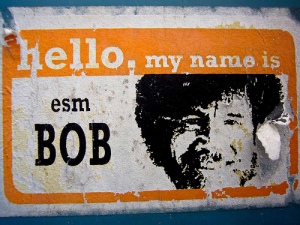Or, Google doesn’t care if you think they’re creepy.

Photo credit to halilgokdal
Google’s corporate policy is don’t be evil, but sometimes in their quest for power (um, I mean information, yeah, that’s it…), they sometimes lose sight of that. Recently, Google’s come under a lot of fire for enforcing a real name policy on Google+. (Basically, Google requires you to use your name that you go by in real life, not any sort of handle or screen name. For more on the Google+ real policy and the debate behind it, read my earlier post “Publicness, Persistence, and the case against Real Name policies”.)

Photo credit to sashafatcat
In their enforcement of the real name policy, they’ve made a lot of mistakes: not accepting people’s actual real names because they didn’t fit into a common western name paradigm, disabling users’ accounts for violating the policy, not being flexible in borderline cases … But, generally, they’ve acted pretty conciliatory about their actions. The party line was: this is for users’ benefit, people want to be in an environment where they know who their talking to, etc. Continue reading →
Tags: Culture, G+, Google, Identity, Internet Culture, Online Identity, Technology
 I love autocomplete and the insight it gives you into the zeitgeist of the internet. I purposely take my time when entering search terms so that Google will throw inadvertently amusing (and sometimes racist) suggestions at me.
I love autocomplete and the insight it gives you into the zeitgeist of the internet. I purposely take my time when entering search terms so that Google will throw inadvertently amusing (and sometimes racist) suggestions at me.




